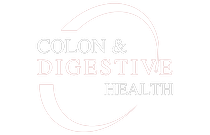Ulcerative Colitis Treatment in Conyers,GA
Understanding Ulcerative Colitis
The lining of the colon (large intestine) and rectum become inflamed and ulcerated as a result of ulcerative colitis (UC), a chronic inflammatory bowel disease (IBD). Symptoms like fatigue, stomach pain, and bloody diarrhea are common. Although UC can have a major negative impact on your quality of life, long-term remission is achievable with early detection and appropriate treatment.
Common Symptoms of Ulcerative Colitis
The degree of inflammation and the extent of colon damage can affect the symptoms of ulcerative colitis. Typical symptoms and indicators include:
- Chronic diarrhea, frequently accompanied by mucus or blood
- cramping and pain in the abdomen, particularly in the lower left
- Pain or bleeding in the rectal area
- An urgent need to go to the bathroom
- Fatigue and weight loss
- Lack of appetite or dehydration
- During flares, fever
- Extraintestinal symptoms include inflammation of the eyes, skin rashes, and joint pain.
If you’re experiencing any of the above symptoms for more than a few days, it’s time to consult with a digestive health specialist. Early treatment is essential to avoid complications.
What Causes Ulcerative Colitis?
Although the precise cause of ulcerative colitis is still unknown, there are a number of potential contributing factors, such as:
- Abnormal immune response: The colon’s healthy tissue is mistakenly attacked by the immune system.
- Genetics: Your risk is increased if you have a family history of IBD.
- Environmental triggers: Some medications, infections, stress, and diet can cause symptoms.
- Unbalanced gut microbiome: Possible causes include disturbances in the intestines’ natural bacterial population.
Types of Ulcerative Colitis
Understanding the type of UC helps determine the right treatment:
- Ulcerative proctitis: Inflammation confined to the rectum
- Left-sided colitis: Inflammation extends from the rectum through the sigmoid and descending colon
- Pancolitis: Inflammation affects the entire colon
- Fulminant colitis: A rare but severe form that can lead to life-threatening complications
How We Diagnose Ulcerative Colitis
In order to rule out other digestive disorders and confirm ulcerative colitis, our Conyers clinic employs a variety of contemporary diagnostic tests:
1. Thorough Assessment
We start by talking in-depth about your symptoms, medical history, both personal and family, and any recent illnesses or triggers.
2. Tests in the Lab
Tests for infection, inflammation (CRP, ESR), and anemia using blood
Studies of the stool to look for infections or levels of calprotectin in the stool that show intestinal inflammation
3. Biopsy and colonoscopy
The most reliable method for identifying ulcerative colitis is a colonoscopy. To verify inflammation and rule out other causes, we take tiny tissue samples from the colon during the procedure.
4. Imaging (when necessary)
In cases that are severe or unclear, an MRI or CT scan may be used.
X-rays of the abdomen can be used to evaluate serious
Treatment Options for Ulcerative Colitis
Your response to prior treatments, the location of the disease in the colon, and its severity will all affect how you are treated. We offer both standard-of-care and cutting-edge therapies at our clinic, depending on your circumstances.
.
A. Handling Medication
Remission (control of active symptoms) and its long-term maintenance are our objectives. Typical prescription drugs include:
- Aminosalicylates (5-ASA): Mesalamine, sulfasalazine, and other 5-ASA are first-line treatments for mild to moderate disease.
- Corticosteroids: Use of corticosteroids, such as prednisone and budesonide, for brief periods of time during flare-ups
- Immunomodulators: Aid in reducing immunological activity (e.g., 6-MP, azathioprine)
- Biologic therapies: Sophisticated medications that target particular immune pathways, such as vedolizumab, adalimumab, and infliximab.
B. Nutritional & Lifestyle Support:
Ulcerative colitis isn’t just about medication. Our team also provides:
- Personalized dietary counseling to avoid trigger foods and support healing
- Probiotic therapy and gut-friendly nutrition plans
- Stress management techniques (e.g., mindfulness, breathing, yoga)
- Support for managing fatigue, anxiety, and IBD-related depression
C.Surgical Options (If Needed):
Surgery is considered when medical treatments fail or complications develop. We work with top-rated colorectal surgeons in Georgia to offer:
- Colectomy (removal of the colon)
- J-pouch surgery (ileal pouch-anal anastomosis)
- Permanent ileostomy (if needed)
Our treatment approaches may include medication to reduce inflammation and suppress the immune system’s response, dietary counseling to identify and avoid trigger foods, and in severe cases, surgery.
D.Ongoing Support and Education:
Living with UC requires ongoing care. We provide continuous support, education on managing symptoms at home, and strategies to prevent flare-ups, helping you lead a more comfortable life.
Ulcerative Colitis: Diet and Management
There is more to treating ulcerative colitis than just taking prescription drugs. In order to manage flare-ups, sustain remission, and enhance general gut health, diet is essential. Although there isn’t a single, universally applicable diet for ulcerative colitis, some foods and lifestyle choices have been demonstrated to help lower inflammation and alleviate digestive symptoms.
Based on our clinical experience and scientific evidence, the following are typical dietary practices and food recommendations:
Recommended Foods for UC Patients
1. During flares, a low-residue (low-fiber) diet helps lessen cramping in the abdomen and bowel movements.
The best foods include eggs, lean poultry, white bread, white rice, plain pasta, and smooth nut butters.
Steer clear of raw veggies, popcorn, whole grains, seeds, and legumes.
2. Easy-to-digest, high-protein meals
keeps muscle mass and aids in tissue repair.
The best sources are cooked eggs, fish, poultry, turkey, and tofu.
3. Nutritious Fats
Pay attention to fats that reduce inflammation, particularly omega-3 fatty acids.
Flaxseed oil, olive oil, and fatty fish (mackerel, salmon) are suggested.
Limit: Processed oils, fried foods, and saturated fats
4.Hydration & Electrolyte Support
Frequent diarrhea can cause fluid and electrolyte loss
Tips: Drink water regularly; include oral rehydration solutions or broths during flares
Foods to Avoid During Flares
- High-fiber roughage: Raw veggies, skins, seeds
- Spicy and greasy foods: Can irritate the digestive lining
- Carbonated drinks & caffeine: May increase urgency and cramping
- Alcohol: Triggers flare-ups and dehydrates
- Sugar-heavy snacks & desserts: Promote inflammation and gut imbalance
Living With Ulcerative Colitis: Our Support Goes Beyond Treatment
Although ulcerative colitis is a chronic illness, many patients can experience extended periods of remission and a normal quality of life if they receive the right care.
We’re here to help you:
Recognize and stay away from flare-up triggers.
Stay on track with regular screenings and colon cancer surveillance.
Obtain patient education and emotional support.
As your needs change, modify your course of treatment.
Expert Care: Dr. Karim Shakoor, M.D specialization in gastroenterology and inflammatory bowel diseases ensures you receive expert care tailored to your condition.
Holistic Approach: We focus on treating the whole person, not just the symptoms, integrating medical treatments with lifestyle and dietary changes to manage UC effectively.
State-of-the-Art Facilities: Our clinic and the Eastside Endoscopy Center are accredited by The Joint Commission, ensuring you receive care in a facility committed to the highest standards of patient safety and quality.
FAQs
UC cannot be cured, but it can be effectively managed. With medication and lifestyle changes, many patients achieve long-term remission.
Patients with long-standing UC usually need colonoscopies every 1–3 years to monitor for colon cancer.
Stress doesn’t cause UC, but it can trigger or worsen flare-ups. Managing stress is an important part of overall treatment.
Both are forms of inflammatory bowel disease (IBD), but they differ in location and inflammation patterns. Ulcerative colitis only affects the colon and rectum, with continuous inflammation of the inner lining. Crohn’s disease can affect any part of the GI tract and often appears in patchy segments, impacting all layers of the intestinal wall.
If you’re looking for specialized ulcerative colitis care in Conyers, GA, Dr. Karim Shakoor at Colon & Digestive Health Specialists provides advanced diagnostic tools and personalized treatment plans to manage your condition. With compassionate care and evidence-based therapies, our clinic is a trusted destination for IBD management in the Conyers community.
Get Started
Manage Your Ulcerative Colitis with Expert Care If you or a loved one is dealing with Ulcerative Colitis, expert help is available. Contact CDH today to schedule a consultation with Karim Shakoor, M.D. We’re here to provide the specialized care you need to manage UC and live a healthier, more active life.
At CDH, we’re committed to your well-being. Let us be your partner in navigating Ulcerative Colitis with comprehensive care and compassionate support.
Our location
Colon & Digestive
Health
Specialists
1805 Honey Creek
Commons,
Ste B, Conyers GA
30013
© 2026 All Rights reserved by Colon & Digestive Health Specialists

